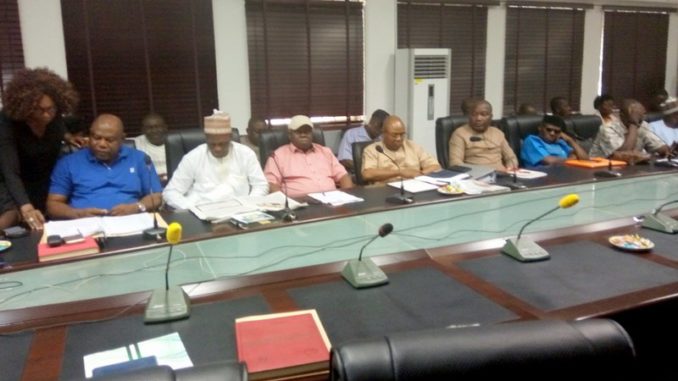
Desirable as it is for the country to embrace a new minimum wage that will impact more positively on workers, the present clamour needs to be taken with great caution, else a seeming truce between government and labour provokes an unpleasant outcome for the workers. In particular, both parties of the divide should be aware of the frightening possibilities that may ensue from a wrong decision, aside the wider economic implications on the economy.
There should be no running away from the indices that point to a flooding of the local currency, which in turn may cause runaway inflation; besides compounding the problem of many states which are already groaning under the speculated quantum of increment.
A desirable increment is one that will see the average worker improving his lifestyle by the margin agreed, which could mean better health care, better accommodation or even improved savings. In other words, a better wage is good for the economy because more disposable income in the hands of households (a sub set of economic actors) pushes up the propensities to consume and to save. Both propensities have net effects of pushing up Gross Domestic Product (GDP). Therefore, if the quantum of people getting the pay rise is significant enough, National Income should rise.
But with increased demand, prices of goods and services should rise in a demand-pull inflation to push inflation above the current rate of 11.28 percent. Unfortunately, it will be happening at a time that several other inflation-causing factors are unleashed in the system. For instance, prices are rising presently because of the persistent herders/farmers clashes in the food basket of the country as people abandon farms to escape the bloodshed in Benue, Plateau, Adamawa and Taraba states. The resultant relative food scarcity is pushing prices up, especially in the southern parts.
According to Tradingeconomics. com, “the annual inflation rate in Nigeria rose to 11.28 percent in November of 2018 from 11.26 percent in the previous month. Prices advanced faster mainly due to higher cost of food and housing and utilities”.
Also, the demand for a rise in minimum wage is coming at a time of elections, when politicians usually open the lids to their naira vaults from which they influence peoples’ votes. Last year’s elections in Osun and Ekiti states and the flood of money that flowed to sway the elections are clear pointers to what can happen in this year’s general elections. The resultant flood of cash in their billions will likely push up the prices of goods and services.
The increase sought in workers take-home also coincides with a period that foreign portfolio investors are dumping naira for dollars leading to a flood of naira in the system, N848 billions of which was mopped up recently by the Central Bank. The excess naira is an inflation trigger. Evidence of dumping Nigeria assets is all over the capital market as the NSE capitalisation sank more than 40 percent last year, dropping from 45,092.83 points in January to 32,154 in November.
The fear of inflation that is triggered by these factors, and the envisaged improvement in minimum wage is causing yields on government bond to rise. At 15.54 percent, bond yields are approaching levels seen during the recession. This is particularly not palatable given that stock prices are falling at this time; it allows for a less viable alternative for investors who are getting out of stocks. Traditionally, as investors leave stocks, they enter bonds.
Apart from serving as fodder to stoke the embers of inflation, a defective minimum wage agreement can only contribute to the mountain of debt by state governments who already owe trillions in pensions, salaries areas and foreign loans. Only a handful of states: Lagos, Rivers, Bayelsa, Delta and Akwa Ibom states, have expressed willingness to pay a new minimum wage; while others appear to be backing out of a flat rate figure on the excuse that they are currently facing economic challenges, according to a governor and member of the Nigeria Governors Forum (NGF).
States, like the federal government, have more than 70 percent of their annual budgets dominated by recurrent expenditure of which salaries are a major part. A new minimum wage based on an unrealistic increment will simply spur an increase in that percentage and leave little room for capital expenditure. This will add to other known and suspected inflation fodder in the build-up to elections next month.
The situation will leave the central bank no choice but to raise rates in anticipation of more inflation, failing which the economy could go into a tailspin and slip into recession, again. The emerging situation calls for prompt anticipatory action different from the indecision that plunged the economy into its first recession in two decades. This is how powerful the effect of the rise in minimum wage can be for the Nigerian economy.
END

Be the first to comment